Intro
Discover the best foods for ADHD management. Learn how a balanced diet rich in omega-3 fatty acids, vitamins, and minerals can help alleviate symptoms. Explore the benefits of whole foods like nuts, seeds, and leafy greens, and how to incorporate them into your meal plan for improved focus and reduced impulsivity.
Attention Deficit Hyperactivity Disorder (ADHD) is a neurodevelopmental disorder that affects both children and adults, causing symptoms of inattention, hyperactivity, and impulsivity. While there is no cure for ADHD, research suggests that dietary changes can play a significant role in managing its symptoms. In this article, we will explore the best foods for ADHD, their benefits, and how they can help alleviate symptoms.
Understanding the Connection Between Diet and ADHD
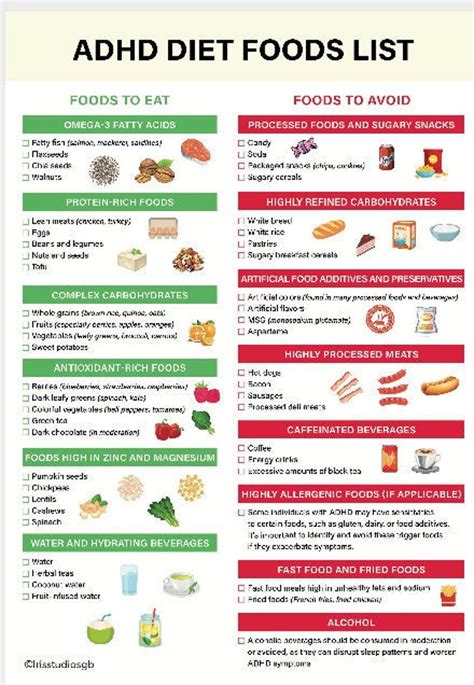
Research has shown that a healthy diet rich in essential nutrients can help alleviate ADHD symptoms. A study published in the Journal of Attention Disorders found that a diet high in fruits, vegetables, and whole grains improved attention and reduced hyperactivity in children with ADHD. On the other hand, a diet high in processed foods, sugar, and unhealthy fats can exacerbate symptoms.
Best Foods for ADHD
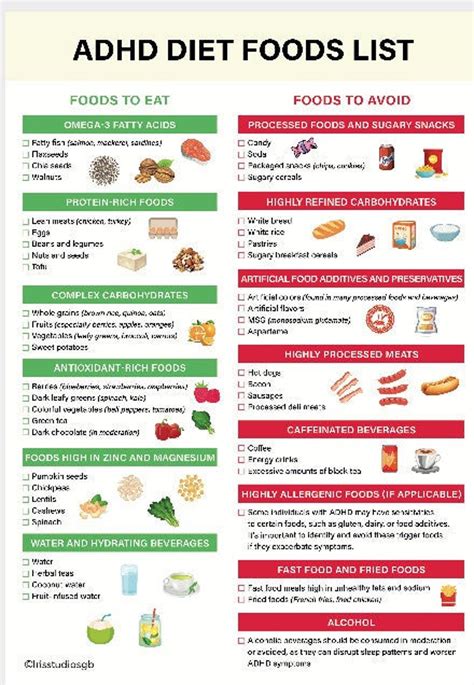
Here are some of the best foods for ADHD, categorized by their nutritional benefits:
Omega-3 Rich Foods
- Fatty fish (salmon, sardines, and mackerel)
- Nuts and seeds (walnuts, chia seeds, and flaxseeds)
- Omega-3 enriched eggs
Omega-3 fatty acids, particularly EPA and DHA, play a crucial role in brain function and development. Research has shown that omega-3 supplementation can improve attention and reduce hyperactivity in individuals with ADHD.
Complex Carbohydrates
- Whole grains (brown rice, quinoa, and whole-wheat bread)
- Fruits (apples, bananas, and berries)
- Vegetables (leafy greens, broccoli, and sweet potatoes)
Complex carbohydrates provide sustained energy and fiber, which can help regulate blood sugar levels and improve focus.
Protein-Rich Foods
- Lean meats (chicken, turkey, and fish)
- Legumes (lentils, chickpeas, and black beans)
- Nuts and seeds (almonds, pumpkin seeds, and chia seeds)
Protein-rich foods provide essential amino acids that support brain function and development.
Healthy Fats
- Avocados
- Nuts and seeds (walnuts, chia seeds, and flaxseeds)
- Fatty fish (salmon, sardines, and mackerel)
Healthy fats support brain function and provide sustained energy.
Foods to Avoid
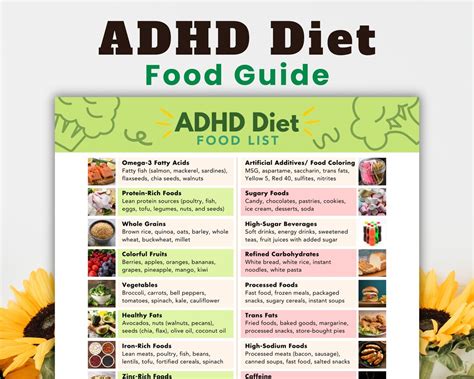
While incorporating the best foods for ADHD, it's essential to limit or avoid foods that can exacerbate symptoms. These include:
- Processed meats (hot dogs, sausages, and bacon)
- Sugary drinks (soda, sports drinks, and energy drinks)
- Refined carbohydrates (white bread, sugary snacks, and baked goods)
- Artificial additives (food coloring, preservatives, and artificial sweeteners)
Meal Planning and Snacking Strategies
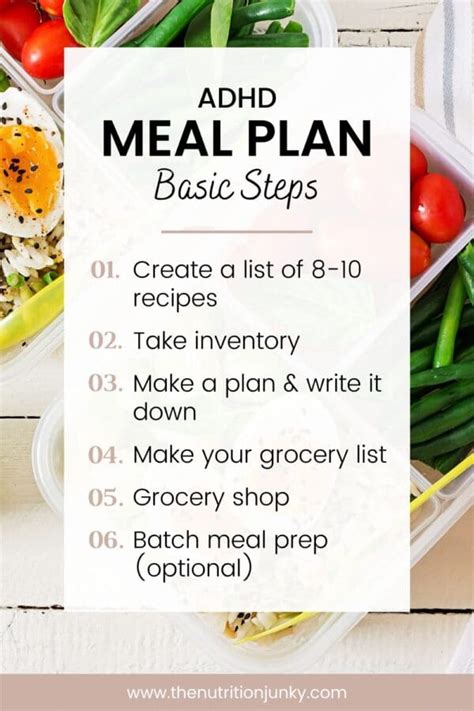
To incorporate the best foods for ADHD into your diet, consider the following meal planning and snacking strategies:
- Eat regular meals to maintain stable blood sugar levels
- Include a balance of protein, complex carbohydrates, and healthy fats in each meal
- Choose whole, unprocessed foods whenever possible
- Limit sugary snacks and drinks
- Drink plenty of water throughout the day
Conclusion
While diet alone cannot cure ADHD, incorporating the best foods for ADHD can help alleviate symptoms and improve overall health. By understanding the connection between diet and ADHD, incorporating omega-3 rich foods, complex carbohydrates, protein-rich foods, and healthy fats, and limiting or avoiding foods that can exacerbate symptoms, individuals with ADHD can take a proactive approach to managing their condition.
Final Thoughts
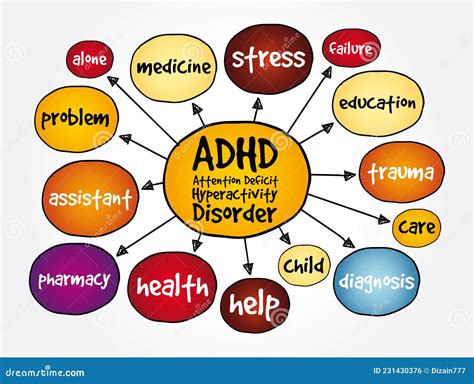
In conclusion, a healthy diet rich in essential nutrients can play a significant role in managing ADHD symptoms. By making informed food choices and incorporating the best foods for ADHD, individuals with ADHD can improve their overall health and well-being.
Can dietary changes cure ADHD?
+No, dietary changes alone cannot cure ADHD. However, a healthy diet rich in essential nutrients can help alleviate symptoms and improve overall health.
What are the best foods for ADHD?
+The best foods for ADHD include omega-3 rich foods, complex carbohydrates, protein-rich foods, and healthy fats. Examples include fatty fish, whole grains, fruits, vegetables, lean meats, and nuts and seeds.
How can I incorporate the best foods for ADHD into my diet?
+Incorporate the best foods for ADHD by eating regular meals, including a balance of protein, complex carbohydrates, and healthy fats in each meal, choosing whole, unprocessed foods whenever possible, limiting sugary snacks and drinks, and drinking plenty of water throughout the day.
